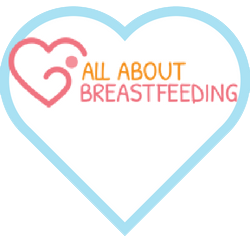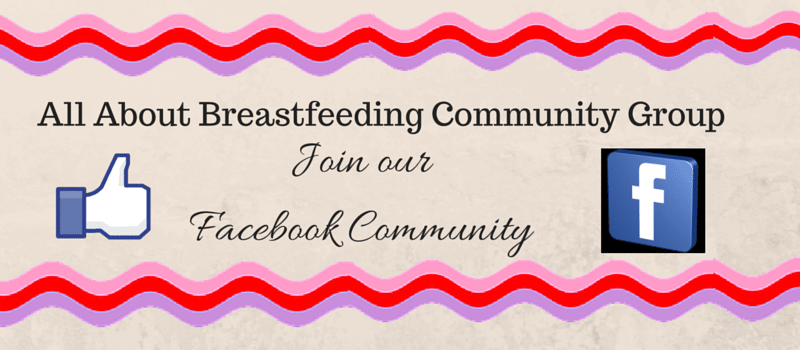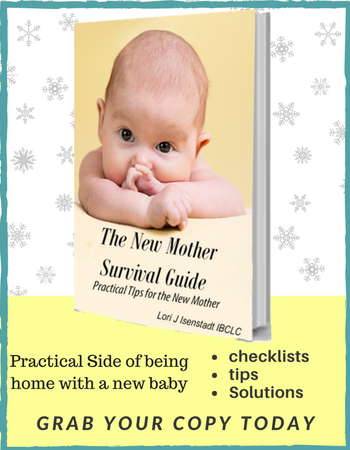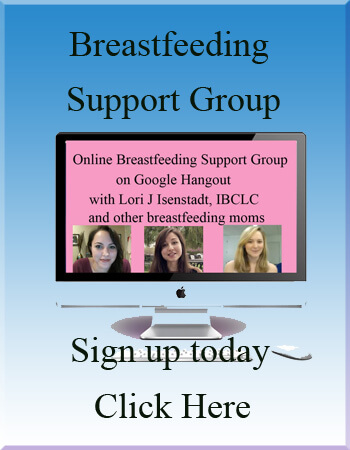
Today’s Podcast
episode 266 and 269
Listen Here
Listen Here part 2
Welcome to All About Breastfeeding Podcast Page
Here You Will Find Access to All My Podcasts
Rachel Sorensen:
” I was not expecting it to be so hard. I didn’t know that I needed to be eating healthy. I kind of lost my appetite completely and would force myself to eat occasionally and drinking water, I didn’t know I needed to be drinking water. I look back and it was a tough time for sure for a lot of moms for sure, for a lot of moms.”
Her Story.
Her Bio:
Rachel is a stay at home mom of 2. Layla is 3 and Levi is 5 months old. Her and her husband live in Rexburg Idaho. She has 2 sisters and is the middle child, which we both agree is the best – as we are well-adjusted.
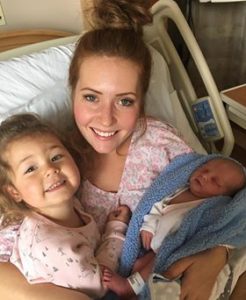 Her family on both sides all live within a 20 minute drive of each other. She can drop the kids off at the grandparents and her favorite thing to do is go home and nap. As she says: She does not want to set the world on fire – just get in a nap.
Her family on both sides all live within a 20 minute drive of each other. She can drop the kids off at the grandparents and her favorite thing to do is go home and nap. As she says: She does not want to set the world on fire – just get in a nap.
Was she breastfed?
Her older sister, who is 3 years older than Rachel. Her mom had an unmedicated vaginal birth with her. Her mom was never asked if she wanted to breastfeed. She was given a pill to dry up. She did not breastfeed Rachel either. Her mom remarried, had her little sister, which is about 10 years difference. She did breastfeed her little sister for about 6 weeks. She hated it, felt a lack of confidence, little support, was nervous about it and just switched to formula at 6 weeks. She said she knew one other mom she knew who breastfed and it was weird and abnormal in the environment she was raising her baby in.
Rachel states that she lives in a very modest town. She rarely sees any mothers breastfeeding in public, even if they are covered up.
How did Rachel decide she wanted to breastfeed:
Her older sister had a baby first. At the time, Rachel was not married and had no interest in birth or breastfeeding. She is a milk cow – makes so much milk and it seemed to breastfeeding seemed to be so easy for her. Since her sister breastfeed, she just figured she would also.
What she did to prepare for breastfeeding:
Rachel was so fascinated with birth stories and listened to a lot of these stories. When it came to breastfeeding, she just figured it would come easy, just as it did with her sister. This is a reasonable assumption. Rachel, like many other moms, just thought that since it was a natural thing to do, that it would come naturally.
Looking back, she sees that it is normal, but going through it herself, she did not feel it was easy or normal. She wondered why it was so hard for her and seemingly so easy for other moms she saw breastfeeding. This may be, because she did not get to see them in the early days when they were working at making breastfeeding look easy!
Breastfeeding her first baby – Layla
She had an induced 15 hour labor, with an epidural. No complications with the birth. Looking back she does not remember being offered to breastfeed until hours later until she was in her pp room. She did not know anything about skin to skin and supply and demand. The nurse told her to breastfeed her every 3 hours. So she followed this to the letter of the law and waited 3 hours to feed her. She now knows different and next time will unswaddle her as she kept her swaddled and only nursed her every 3 hours. Right before discharge she was told the baby had jaundiced and she should just keep nursing her every three hours. She had not even passed meconium yet either.
The nurses all told her the latch looks good. So she felt things were going well, and yet when she came home from the hospital, she was screaming so loud and hard to latch on, or she would finally latch on and then fall asleep at the breast. This is how it went for her – such a struggle. Her nipples were not cracked and they did not really hurt her.
This feeling she had when she went to nurse her was a feeling of dread. It was such a fight and such a struggle. She would ask her doctor if her baby was doing okay and she was told she was.
Postpartum Life:
Rachel talked about how difficult postpartum life was for her. It took such an emotional toll on her. She felt that he husband would be there to support her, however, the realization that he needed 8 hours to sleep to function. His world was turned upside down and he was not able to be the full support person she had anticipated.
Breastfeeding Support:
She lives in a very small college town that caters to young kids who are on WIC. She called around looking for help and found that unless she was on WIC or Medicaid they would not see her. The lactation consultant at the hospital said things were going well, but it was not going well. She looked for a second opinion, but had such a difficult time finding help.
She was told about a person who could see her at a pediatric office. She was willing to go there but they wanted her to establish care there. Since she was happy with her family physician, she did not want to switch. Rachel feels that this woman took pity on her because she finally said that she would see her for a home visit and she would need to pay out of pocket.
Rachel was happy to pay for this home visit. It felt kind of weird for her to have a strange person in her house observing her feeding, seeing her breasts and this was all new to her. She was shown a few different positions, but could not really get comfortable with breastfeeding in any other position.
Brick Walls:
It is so common for moms who are struggling with breastfeeding to have a difficult time finding good help. There are so many brick walls/barriers to breastfeeding that are the cause for breastfeeding rates to drop. Lori talked a bit about the breastfeeding course she is developing to address some of these common problems and concerns. She hopes this will help moms be more prepared about what to expect in the early days of breastfeeding.
Murphy’s Law:
When she did visit with the Lactation Consultants, it seems that Layla was so good and latch on really well. This was quite frustrating for her because she so desperately need help.
Guilt and the breastfeeding mother:
Rachel felt judgement and felt like she couldn’t quit. It was not because other people were telling her she was bad. These are words she told herself. She felt like would be a bad mom if she quit breastfeeding. She felt such a heavy burden and if she quit to her this meant she was screwing up and not giving her baby the best start in life
Support of her husband:
This was the first baby for him and probably one of the
I nursed her until she was 7 weeks old. A few weeks before, her husband was feeling quite stressed watching her be so upset and struggle. His way of supporting her was to suggest she switch to formula as he is like most men who just want to fix the problem and this was his answer to fixing the problem. Rachel understands his mindset, but no matter how much he told her that she was not a bad mom, but she says she was in such a dark place, but she just did not believe him or trust that if she quit breastfeeding that all would be okay.
Discussion with her Doctor:
She went for her 6 week visit and she expressed all her dark feelings to her physician. She was sleep deprived, not eating, feeling guilty about the prospect of not breastfeeding. Becoming a new mother was such a struggle, she explained her feelings to her, said she was crying all the time Her doctors response to her was so common, and yet so off base. She blames herself for holding in her tears being a reason that her doctor did not take her seriously. After she told him her symptoms, He told her that it was probably the baby blues. He said that the days are long and it is winter and once Spring comes things will be better. Rachel was concerned about her mental health. After asking him if it was normal and being told that it was, she was not convinced.
Her mom was also telling her to “give it 3 months.” Rachel said she felt: 3 months? Am I going to survive until then. She finally went in to her doctor and told him that she felt she as suffering from ppd. He said okay and decided to prescribe medication for her to take. She took it for 4 days and said it made her feel worse so she just flushed it down the toilet. Rachel said it made her symptoms worse. She started having dark feelings that she was worried about taking these drugs, then will need harder drugs and soon will become a drug addict and lose her baby and her daughter was going to be abandoned. These thoughts were strong and overwhelming and things were worse. She knew she loved her daughter, but was not connecting with her and was definitely not “head over heels” with her daughter. She was not enjoying her baby.
Lack of appropriate care for postpartum depression:
Her physician gave her some medication, and we talk about the medication she took and how they made here feel. We also talked about the fact that her physician did not recommend therapy and she feels that this was an important part of her treatment plan that was ignored. Rachel said she feels if she had someone to talk about it, she might have fared better. She did not find even one mom who stated they were going through similar struggles. As moms, we tend to put a smile on our face as we don’t want to let on to anyone that we are experiencing anything but joy in new motherhood.
She recognizes now that her approach would be different next time. Most moms are just like her. They put a happy face on, smile to one another and tell each other how great new motherhood is. We just don’t want anyone to know that we are not loving motherhood.
At some point, she felt like she just could not go on like this. Something had to give. She had already begun supplementing and while she felt guilty, she also states that she felt like a quitter.
She started nursing and pumping again. Not getting anything she realized that breastfeeding was over for her this time. The guilt continued as she expressed that she just did not do the best thing for her baby. Rachel can now take a look back at that time and feels okay. With a clear mind, she can be objective about her experience and recognizes that she did the best for her baby and that is okay.
How did this affect her as she went into her next pregnancy
She did not care about how her birth went for her baby. She cared and focused on the postpartum and breastfeeding relationship. She did everything she could to prepare for this time period. She listened to the fabulous podcast – The Birth Hour. Rachel loved listening to not only the birth stories, but the postpartum and breastfeeding period. At so me point, she found this show, The All About Breastfeeding show. She began listening to a lot of the shows and took in all the information she learned from listening to the shows.
Along with her positive attitude, she also told herself to give herself grace if for some reason breastfeeding did not work out for her the second time. No guilt this second time. The first time she was so focused on the nursery and the maternity clothes and the toys. This time around, she did not care too much about the nursery. She just cared about having an easier time during the postpartum period and to be able to breastfeed comfortably.
Breastfeeding Levi
The birth went well. The Dr. was the same. The hospital was the same. The difference this time is that Rachel was more knowledgeable about the early days of breastfeeding. This time Rachel knew about the “golden hour” and she spent the early hours after birth skin to skin with her baby tucked in with her. This time around she had no visitors and noone else was holding the baby.
No one knew that she had her baby. Her mother-in-law watched her daughter when she went into the hospital in labor. None of her family knew she had the baby so she was able to spend this special time with just her baby and her husband. This made it easier for her to focus on and respond to her babies feeding cues.
We talked about how completely different this was for Rachel. This time around she actually had hunger cues herself and wanted to eat well and wanted to drink a lot of water. She knew the importance of this and was very happy to just be with her baby. She also knew she wanted to meet with the hospital lactation consultant even though she felt things were going well. In fact, Rachel said she met with the hospital lactation consultant several times during this hospital stay. She was surprised at how much output Levi had as this was not what happened with Layla.
We talked about how Rachel listened to the podcast during her labor and postpartum during her hospital stay. Listening to what to expect the very first day and Day 1-4 and 5-14. While this was quite helpful, she also recognizes the benefits of having hands on help too if it is available to you.
Her postpartum period
Rachel tells us that she spent the first few weeks at home, basically topless. She nursed every time Levi showed hunger cues. This time around she understood the law of supply and demand and the goodness of plenty of skin to skin time. She wanted to give herself the best opportunity to establish a good supply.
When Levi was 4 weeks old, she got mastitis. It was very painful. Rachel did get through this time and carried on with breastfeeding. She did begin to have some issues as Levi was being very fussy and she just did not know what was going on. She sought the help from the hospital lactation consultant, thought perhaps she had oversupply – too much foremilk making him fussy?
Levi got sick and the breastfeeding relationship changed
When Levi got RSV and he stopped wanting to nurse. It was hard for him as he was quite congested. She pumped and gave him a bottle so she could ensure that he would eat. Unfortunately Levi needed to be hospitalized for a few days and he received all bottles. With all the bottles, Rachel felt like he just stopped wanting to work for his feeding at the breast.
She continues to pump and bottlefeed because she wants him to get all her milk. Rachel talks about the fact that breastfeeding is so hard, but so is pumping and bottlefeeding. She kept trying him at the breast but he just did not want to breastfeed anymore. There were times when he would breastfeed in the morning but not at night.
Rachel suspects that perhaps something else is going on because she can easily pump 10 oz in the am and 6 oz as the day goes on. She wonders why breastfeeding just did not work out for her and Levi and while she feels sad about it, she is not depressed about it and has accepted that she is now an exclusively pumping mom!
Rachel talked about how difficult it can be for moms when breastfeeding is difficult for them. Perhaps they cannot breastfeed and exclusively pump and their babies get all their milk. Sometimes moms need to supplement their milk with formula.
Pearls of Wisdom
She suggests that moms listen to this podcast as it will help them be prepared. Do some research and know what to expect. Rachel really wants moms to know that sometimes they are survival mode and however it is they feed their baby, they should not be so hard on themselves. She wants moms to know that just the fact that you are worrying about your baby already shows that you are a good mom.

listen Now
listen Now part 2
Lori J. Isenstadt, IBCLC
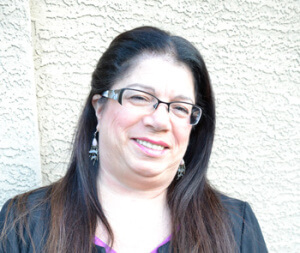 Lori Jill Isenstadt, IBCLC is a huge breastfeeding supporter. She has spent much of her adult life working in the maternal health field. Once she became turned on to birth and became a childbirth educator, there was no stopping her love of working with families during their childbearing years. Lori became a Birth doula and a Postpartum doula and soon became a lactation consultant. She has been helping moms and babies with breastfeeding for over 25 years. Lori founded her private practice, All About Breastfeeding where she meets with moms one on one to help solve their breastfeeding challenges. She is an international speaker, book author and the host of the popular itunes podcast, All About Breastfeeding, the place where the girls hang out. You can reach Lori by email at: aabreastfeeding@hotmail.com or contact her via her website: allaboutbreastfeeding.biz/contact
Lori Jill Isenstadt, IBCLC is a huge breastfeeding supporter. She has spent much of her adult life working in the maternal health field. Once she became turned on to birth and became a childbirth educator, there was no stopping her love of working with families during their childbearing years. Lori became a Birth doula and a Postpartum doula and soon became a lactation consultant. She has been helping moms and babies with breastfeeding for over 25 years. Lori founded her private practice, All About Breastfeeding where she meets with moms one on one to help solve their breastfeeding challenges. She is an international speaker, book author and the host of the popular itunes podcast, All About Breastfeeding, the place where the girls hang out. You can reach Lori by email at: aabreastfeeding@hotmail.com or contact her via her website: allaboutbreastfeeding.biz/contact
Submit a comment
your email address will not be published
